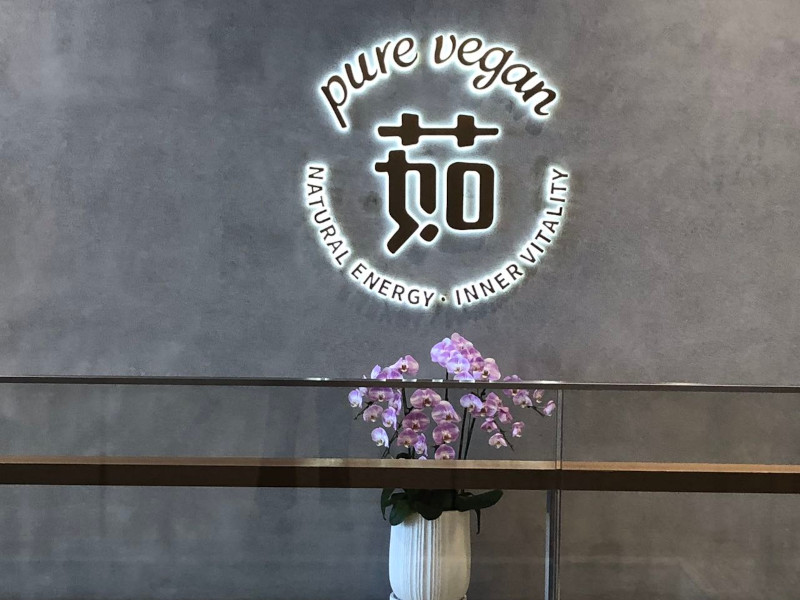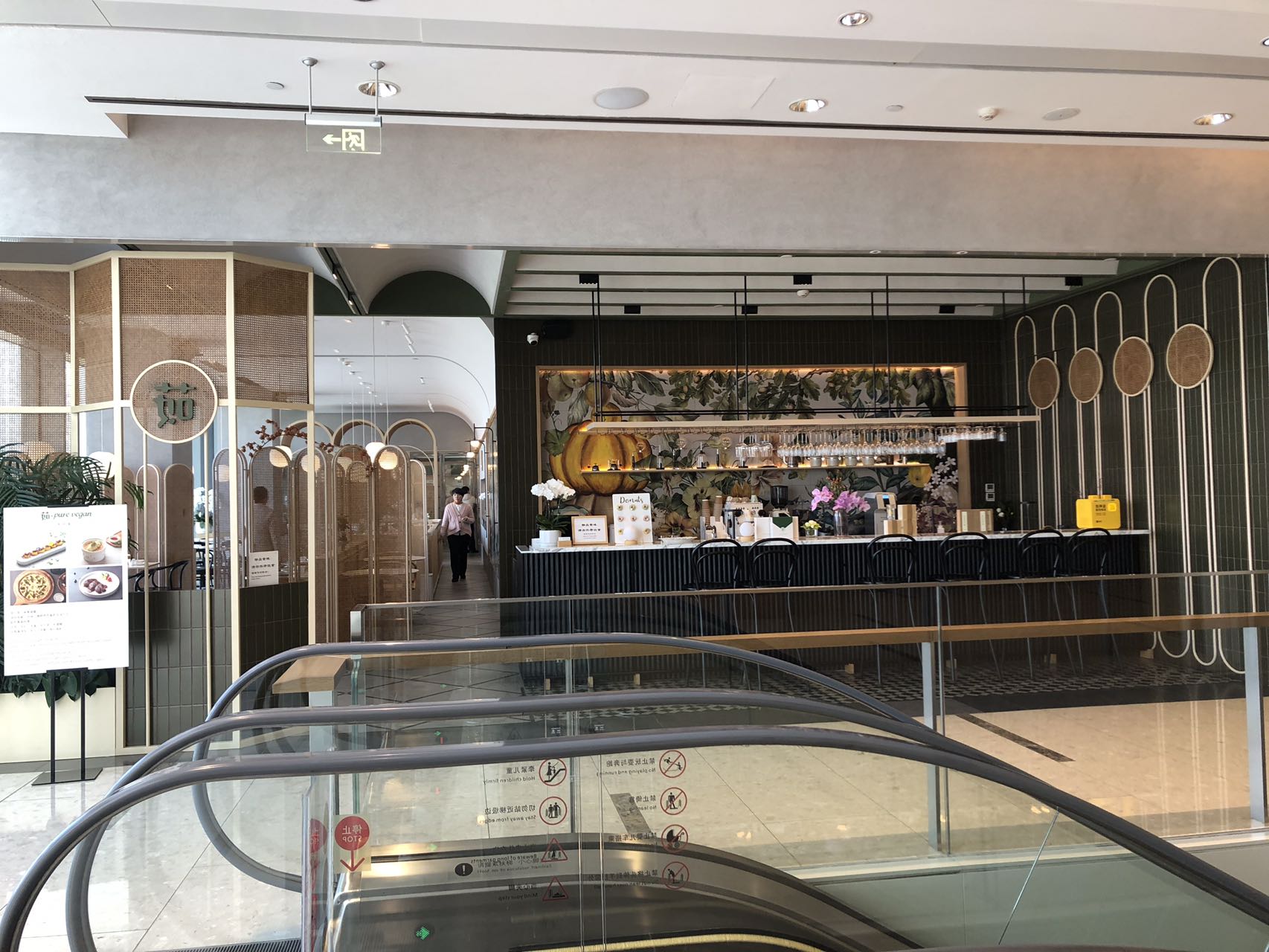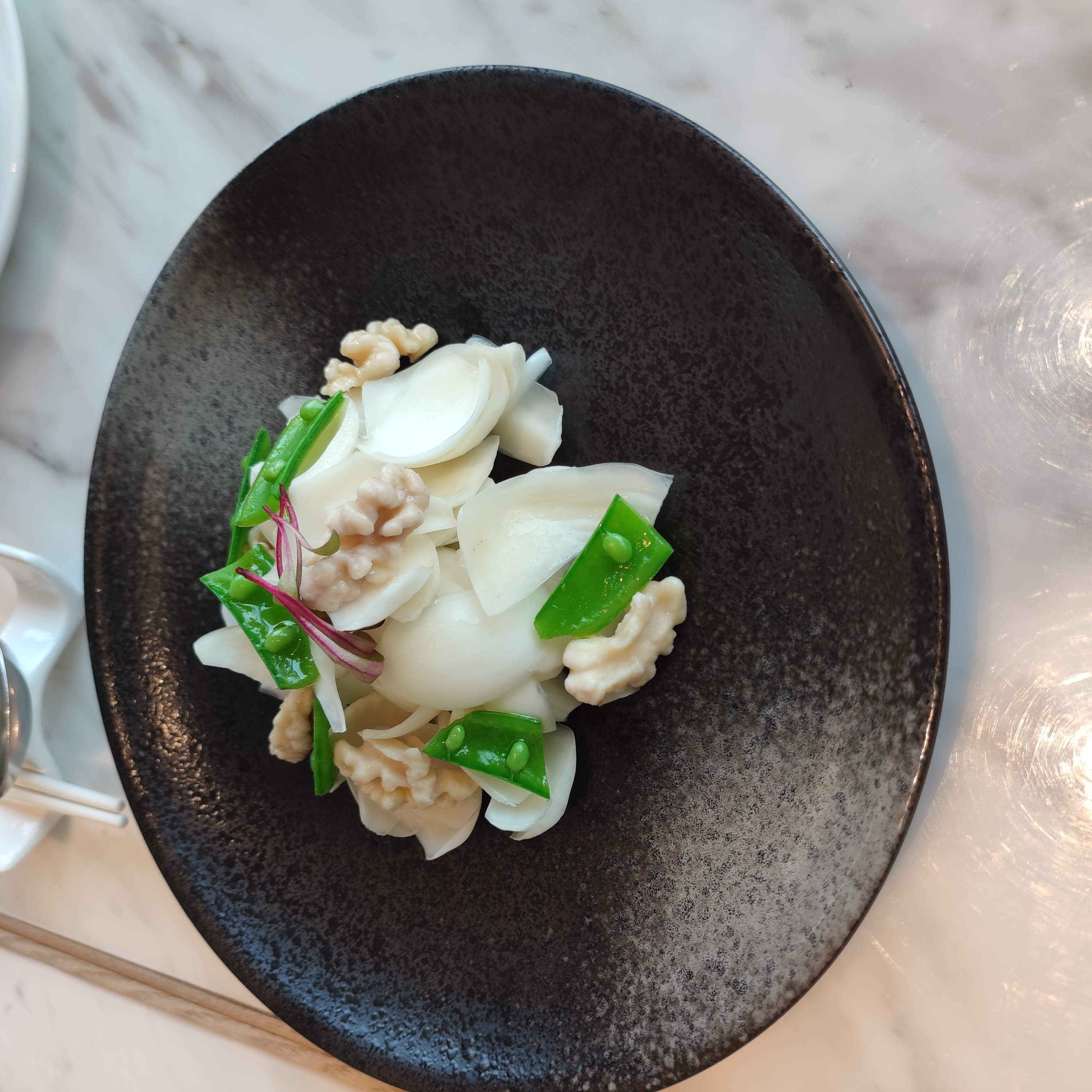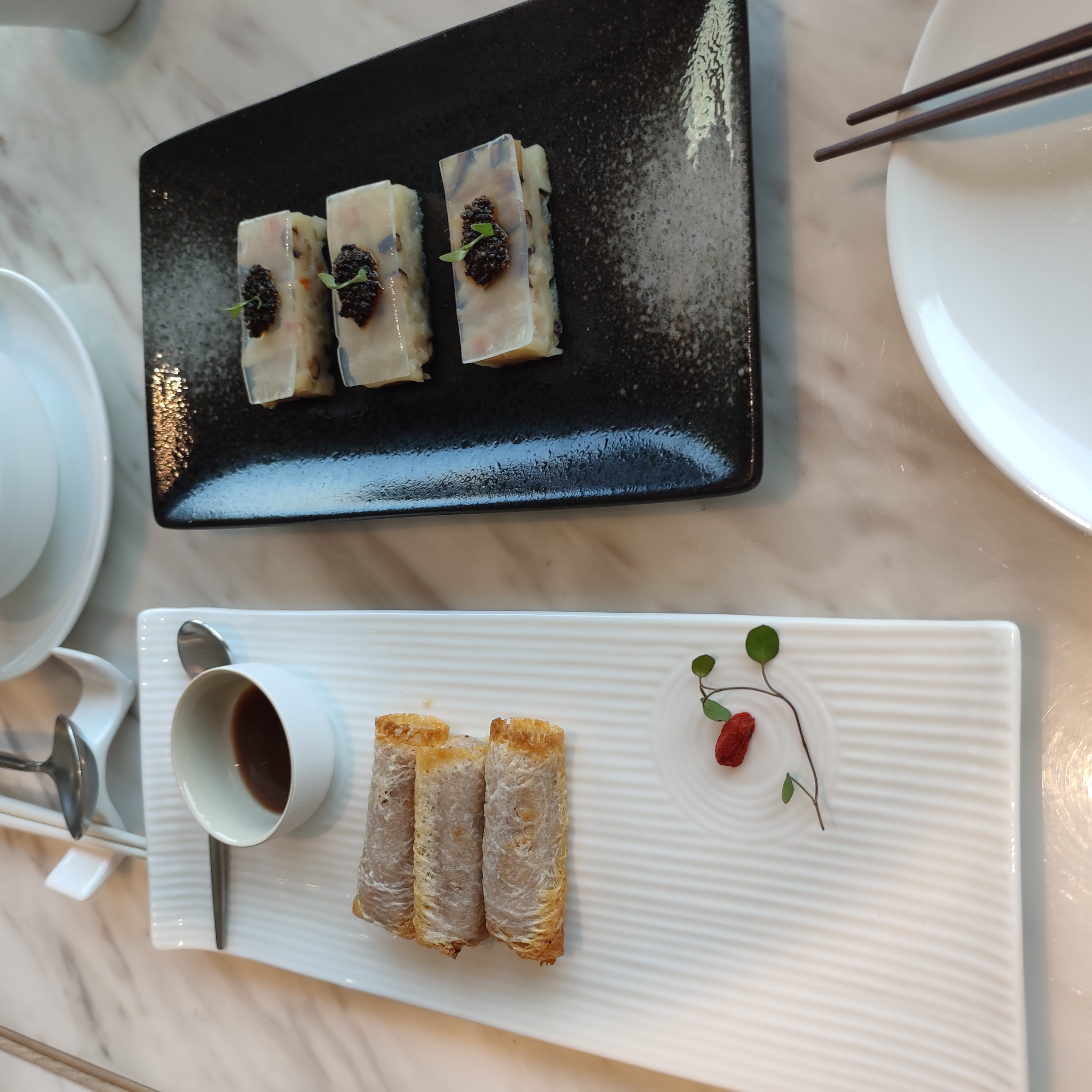
Logo of Ru
I’m here to review Ru (茹), also known as Pure Vegan, a vegan restaurant in Shanghai, which I visited with members of Plant Futures DKU on a crisp Monday in December 2025. But before I tell you about the restaurant, I want to talk about what makes a meal meaningful.
Humans have been gathering around food since we first learned to control fire. There’s something almost sacred about sharing a meal, not just in the way conversations unfold between bites, or how stories taste better when seasoned with good company, but in its unique power to open hearts and minds. A meal is more than sustenance; it’s a moment of connection, a chance to reflect, and sometimes, an invitation to imagine living differently.
Speaking of reflection, my journey to Ru began with a classic reminder of my own imperfection — because I’d forgotten, once again, to book my ticket in advance, I had to take a train to Hongqiao Station instead of Shanghai Station (which is closer to Ru). It was a minor inconvenience, a mere blip on the radar, that felt utterly unimportant the moment I stepped into Ru, and was enveloped by something truly extraordinary.
Ru isn’t just a restaurant. It’s a space where intention meets action. The elegant design and quiet ambience don’t just soothe your senses; they invite you to slow down, to notice, to appreciate. It feels less like a place to eat and more like a sanctuary.

Ru
Ms. Zhang, the manager, spent two hours guiding us through the menu, her voice brimming with the kind of pride you might expect from someone sharing a family recipe. Each dish she introduced wasn’t just food; it was a manifesto of care and attention.
Take, for example, the taro roll; they experimented with ten different varieties of taro, only to discover the one that was, for them, perfect. Then, they opted for baking rather than frying, a decision that speaks volumes about their philosophy. Indeed, there are no deep-fried foods on Ru’s menu, and this seemingly simple choice, profoundly communicates their values.

Red Wine Marinated Tofu (红葡酿郁金豆腐)

Ten-Year-Old Organic Lily Bulb (十年生有机百合)

Black Tiger Mushroom Pizza (黑虎掌菌比萨饼)

Chenpi and Taro Spring Rolls (陈皮罗忘子香芋卷) & Snow Pear and Skin-Softening Radish Cake (雪梨地皮肤萝卜糕)
Then there’s their pizza. Finding good vegan pizza is like spotting a four-leaf clover in a city’s concrete sprawl. Ru’s version, with spicy mushrooms and cashew cheese, redefines what pizza can be. It doesn’t just substitute; it innovates, offering a new way to think about an old favourite.

Food we ordered
If you look at the food we ordered, you might notice it’s slightly less than what people typically order. At Ru, they encourage diners to order only what they’ll eat. This isn’t just about reducing waste; it’s about redefining value, about seeing abundance in what’s enough.
Ru’s meaning, however, goes far beyond its food. Its chef left a successful IT career to study the art of vegan cooking. Ms. Zhang and many others on the team made similar leaps. They’re not just here to work; they’re here to build a vision. One of mindful consumption. One of intention. One of believing that something as simple as a meal can invite people to imagine living differently.
Sometimes, when I’m trying to promote Meatless Mondays at my university canteen, watching students rush by with trays of chicken wings, I feel the weight of resistance pressing down. But Ru reminds me that change doesn’t always arrive with banners and bold gestures. Sometimes it begins with something quiet, like a taro roll baked instead of fried, or a pizza that invites you to think about what’s possible.
And maybe that’s what makes a meal meaningful. It’s not just the food, or the company, or even the stories shared between bites. It’s the way meals, cherished so deeply by so many, offer a chance to show people they can live differently. A reminder that a single meal, prepared with care, can be an invitation to something better.
I give Ru five stars out of five.